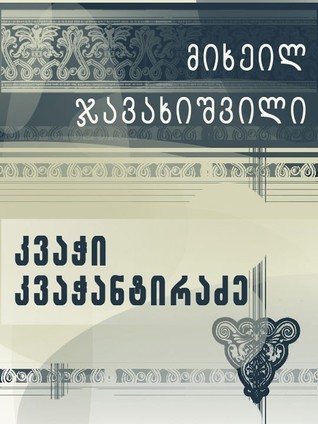What do you think?
Rate this book


Unknown Binding
First published January 1, 1925
If Kvachi was determined to get close to someone, man or woman, that person would within two weeks or so end up totally captivated by him.
Kvachi was clever with clever people, serious with serious people, frivolous with the frivolous, melancholy with the melancholy, joyful with the joyful, but submissive, sycophantic, obsequious, respectful, and ever-smiling with the powerful. But if he had to be, he was able to be humble and witty when he was in coarse or troublesome company; to be insolent, haughty, and headstrong with the weak; to be treacherous, hypocritical, and two-faced with the frank and forthright; to be unfathomably false with the treacherous; to be a reed with an oak, and an oak with a reed; to be cotton with iron, and iron with cotton.
There’s a button torn off Rasputin’s silk gown, his sleeves are rolled up, his hair is dishevelled and falling over his eyebrows, his eyes are bloodshot, his head overheated and foggy.
His oily and glowing eyes have a beast swimming in them; his heart is on fire, and he knows no peace, but is as excited as a wild animal in a cage. He lets his hands wander everywhere and drinks anything he can lay his hands on; he bellows out filthy songs as well as hymns; like a gun, he shoots out incomprehensible words and street language, and these strike Tania, Elena, and the women singers in the heart like arrows. He is constantly falling upon one or the other of the women:
“Why are you acting up? Why are you behaving like an unbroken filly? If we’re having a party, then let’s do it our way, the peasant way. Undo your buttons. Show me your breasts. Take off your clothes.”
This is, in brief, the story of a swindler, a Georgian Felix Krull, or perhaps a cynical Don Quixote, named Kvachi Kvachantiradze: womanizer, cheat, perpetrator of insurance fraud, bank-robber, associate of Rasputin, filmmaker, revolutionary, and pimp. Though originally denounced as pornographic, Kvachi’s tale is one of the great classics of twentieth-century Georgian literature — and a hilarious romp to boot.